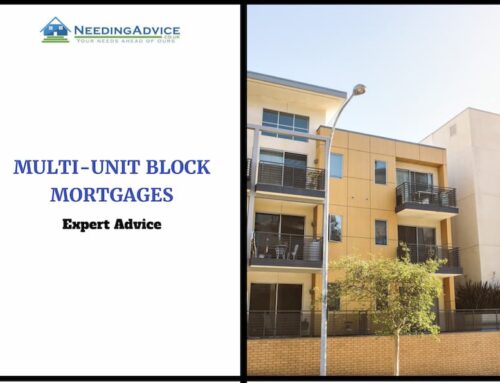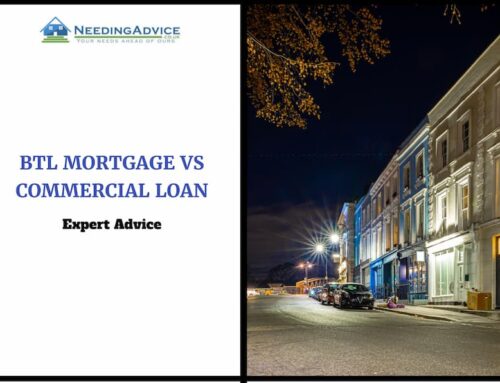When there is no mortgage on a property – you have repaid any mortgage and own your home outright – it is said to be mortgage-free. The technical term for such a mortgage-free property is an “unencumbered” property – it is unencumbered by any mortgage, loan, charge, or other financial restriction.
Why mortgage an unencumbered property?
If you own your home outright, there is valuable equityThe difference between the value of the property and the amo... locked up in its market value. You might want to release some of this potential to raise extra cash – for any number of reasons, but these might include and are not limited to:
- the funds to renovate, extend or improve your home;
- you plan to move home but want the funds to keep the existing property to let out to tenants; or
- to invest in other property;
- to consolidate debt.
To raise those funds, you have the option of remortgaging your current home. Strictly speaking, of course, a remortgageRefinancing an existing mortgage with a new mortgage. is the replacement of one mortgage by another one. In this case, however, you have already paid off your mortgage, and your home is mortgage-free. Lenders are still likely to refer to your raising the desired funds through a remortgage – as a new mortgage on your mortgage-free property, or a remortgage of a freehold property.
The TSB, for example, explicitly treats loans on mortgage-free properties as remortgages – with a maximum 80% loan to valueThe ratio of the mortgage amount to the value of the propert... (LTV) ratio.
Can I get a mortgage on a mortgage-free property?
The very fact that you are the outright owner of a mortgage-free or unencumbered propertyA property that is owned outright and is not subject to any ... immediately puts you in a strong position as far as raising a mortgage loan is concerned.
Whether you bought that property with cash, without the need for a mortgage, or you have already paid off an outstanding mortgage, it shows that you are financially responsible and stable.
Although you may be off to a head start, however, the remortgage of a freehold property is effectively a new mortgage, and any lender will need to conduct the appropriate assessment as to the affordability of the new loan for you.
You have demonstrated a basic level of financial responsibility through owning a mortgage-free property. Still, now the lender needs to assess the affordability of the remortgage in terms of your ongoing income, outgoings, existing debts and loans, the value of the property to be remortgaged, and the loan to value (LTV) the lender may be prepared to offer.
Read about mortgage on remortgaging an inherited propertyA property inherited by a borrower. on our blog.
The lender and the reasons for your remortgage
Any lender is also going to consider your reasons for remortgaging. There may be any number of reasons as we discussed above. Whatever your reasons, the lender will want to be reassured that they make financial sense:
- for the purchase of a new car or holiday, for example, a lender may wish to reassurance as to the affordability of such non-essential expenditure;
- if the remortgage is for the extension or improvement of your home, the lender may want to know the estimated capital appreciation likely to result from the works and to be reassured that the property is already entirely habitable – uninhabitable properties may not qualify for a remortgage; or
- if you intend to invest in buy to let property, the lender may be interested in discovering the expected rental yield – which, in turn, helps to determine the affordability of any remortgage of your unencumbered property.
Any remortgage lender also needs to consider the financial standing revealed by your credit history. A less than perfect credit rating is unlikely to be a significant barrier to Today’s Conveyancer.
Register your mortgage-free property
Although it is not immediately related to the possibility of raising a remortgage on an unencumbered property, you might nevertheless want to ensure that your mortgage-free home is registered with the Land Registry Property Alert Service.
Registration ensures that you are notified of any attempt to modify or alter the ownership of the property – risks that have risen through attempts to defraud property owners of substantial sums, according to a report by .
Get Instant Valuation of your property with this link.
Finding the most appropriate mortgage-free property remortgage
As you are in a good position in terms of having a mortgage-free home that you wish to borrow upon, you may find that a specialist mortgage broker can highlight those deals that are the most competitively priced for your situation. You can then rest assured that you have the most appropriate remortgage solution for you.
FAQs- Mortgage on a mortgage-free property
Can I apply for an unencumbered remortgage if I fully own my house?
Yes, you can apply for an unencumbered remortgage on a property you own outright. It allows you to release equity from your property without an existing mortgage.
What factors influence my mortgage application’s approval with specialist lenders?
Specialist lenders consider various factors, including credit history, income, the type of property, and your specific circumstances. They tailor mortgage solutions to unique situations.
How can I secure the most favorable mortgage deal with a competitive mortgage rate?
To secure the best mortgage deal and rate, it’s essential to shop around, compare offers from different lenders, and work with an experienced mortgage broker who can negotiate on your behalf.
Are there niche lenders catering to specific personal circumstances and financial commitments?
Yes, there are niche lenders who specialize in catering to unique personal circumstances and financial commitments. They may offer tailored mortgage solutions.
Explain the process of equity release through a mortgage repayment plan.
Equity release through a mortgage repayment plan involves borrowing against the equity in your property, which you then repay over a specified term. This can provide you with a lump sum or regular income while retaining ownership of your home.
What considerations should guide my choice of an unencumbered mortgage lender for my property ladder aspirations?
When choosing an unencumbered mortgage lender, consider factors like interest rates, fees, customer service, and their experience in handling similar property ladder goals.
How does the type of property I own impact my mortgage application and rate?
The type of property you own can affect your mortgage application and rate. Some lenders have specific criteria for property types, and rates may vary accordingly.
What options are available for individuals dealing with adverse credit or outstanding loans when seeking secured financing?
Individuals with adverse credit or outstanding loans can explore specialist lenders who offer mortgage solutions designed for these situations. These lenders may require additional security or higher interest rates.
What financial advice should I seek to ensure a strong financial position for my mortgage application?
It’s advisable to consult with a financial advisor to assess your financial situation, improve your credit if necessary, and determine the best mortgage strategy to strengthen your position.
How can I address credit history issues when pursuing a mortgage deal?
To address credit history issues, you can work on improving your credit score, paying off outstanding debts, and seeking advice from a mortgage broker experienced in dealing with such situations.
Is there a way to reduce my monthly mortgage repayment, especially after a late payment?
If you’ve experienced a late payment, it’s essential to discuss options with your lender. They may offer solutions like extending the mortgage term or adjusting the repayment schedule to reduce the monthly burden.
Why is consulting an experienced mortgage broker essential when considering a lifetime mortgage?
Consulting an experienced mortgage broker is crucial for lifetime mortgages as they can help you navigate the complexities, compare offers from different lenders, and find the most suitable solution for your retirement plans.
Explain the various types of mortgage loans available, including current mortgage options.
There are various mortgage types, including fixed-rate, variable-rate, interest-only, and more. Current mortgage options can vary, so it’s essential to explore them based on your needs and financial goals.
What are the key factors to consider when seeking expert advice for my mortgage application?
When seeking expert advice, consider the broker’s experience, reputation, access to a wide range of lenders, and their ability to tailor mortgage solutions to your specific circumstances.
How does my existing mortgage affect my eligibility for an unencumbered remortgage?
Your existing mortgage may need to be settled or discharged before pursuing an unencumbered remortgage. A mortgage broker can help you navigate this process and find suitable lenders for your situation.







Leave A Comment